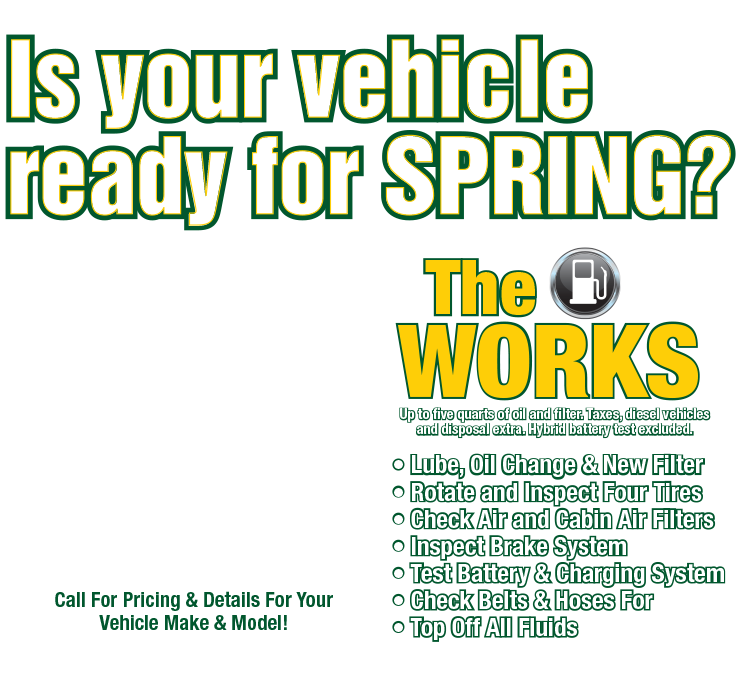Saving Lives in Livonia with Tire Pressure
January 12, 2020
All new passenger vehicles on our Livonia, MI, roads now have tire pressure monitoring systems – TPMS for short. They are designed to alert you if your tires are underinflated. Since they are fairly new, a lot of people have questions about them.
First off, the most important thing is that you still need to check your tire pressure every week – or at least every time you gas up. The TPMS system alert comes in when your tire is 20 percent below the factory recommendation. So if the recommended pressure is 34 pounds per square inch, the TPMS warning won't come on until the pressure is at 28 pounds. That's significantly underinflated, enough to raise safety concerns.
The worst is tire failure. A severely underinflated tire can overheat and fail. Also, handling degrades to the point that you may not be able to steer out of trouble. Also underinflated tires wear out faster and they waste fuel. So it's costly to not stay on top of proper inflation.
What's the practical value of the TPMS system? Well, it's twofold. First, it can alert you when your tire is losing pressure due to a puncture or a bent rim. That's an important warning that you might not have gotten until next time you gassed up.
The second is that we all occasionally forget to check our tire pressure. So it's a fail-safe system to let you know there's a problem brewing.
Other things can cause your TPMS system to go off. The system also monitors itself. The sensors that are mounted in the wheels have little batteries that send a signal to the monitor. The batteries go dead over time and the TPMS system will let you know. And the sensors could break. Also road salt from our MI roads can ruin them.
There's also a hassle factor that your Livonia, MI, tire center has to contend with. For example, when you have your tires rotated in Livonia, the TPMS system has to be re-calibrated so that it knows which tire is on which corner of the car. Same is true for when you have new tires or winter tires installed. Flat repairs, as well.
That takes extra time. And it requires the right equipment and training. Special – and expensive – tire change machines need to be used with some sensors. It's all complicated by the fact that there are a number of different TPMS systems in use so the tire professionals at Auto Lab Livonia need equipment and training for each kind. Tire centers have had to raise the price of some of these basic services to offset their increased costs.
Also if you add custom wheels on your vehicle, you need to put in new TPMS sensors if your originals won't work on the new rims. If you don't your TPMS light will be on constantly and you won't have the benefit of the warning system.
All in all, the mandated TPMS systems will save lives, so they're worth the added hassle and expense.
Auto Lab Livonia
36251 Five Miles Rd
Livonia, MI 48154
734-432-6000
http://www.autolablivonia.com
Need Service?
More articles from Auto Lab Livonia

Rubber Match (Tire Replacement)
April 13, 2025
A set of new tires isn't probably high on anyone's list of exciting purchases. But since your life is literally riding on them, it's probably a good idea to know when it's time for you to buy new ones. If you've been feeling your vehicle slipping more in wet weather or it takes a longer distance... More

Differential Essential (Differential Fluid Exchange)
April 6, 2025
What's the dif? To an automotive technician, it's the differential, a part of your vehicle that helps direct power from the engine to the wheels. The differential is a gearbox that enables the drive wheels to turn at different speeds (they do that when you turn). Inside the differential is a f... More

Let?s Shift Gears (Transmission Fluid Replacement)
March 30, 2025
If you have a vehicle with an automatic transmission, you probably never think about gear shifting. When motor vehicles were invented, all of them had to be shifted manually. But that wonderful self-shifting transmission, referred to these days as simply an automatic, changed everything. Automa... More










